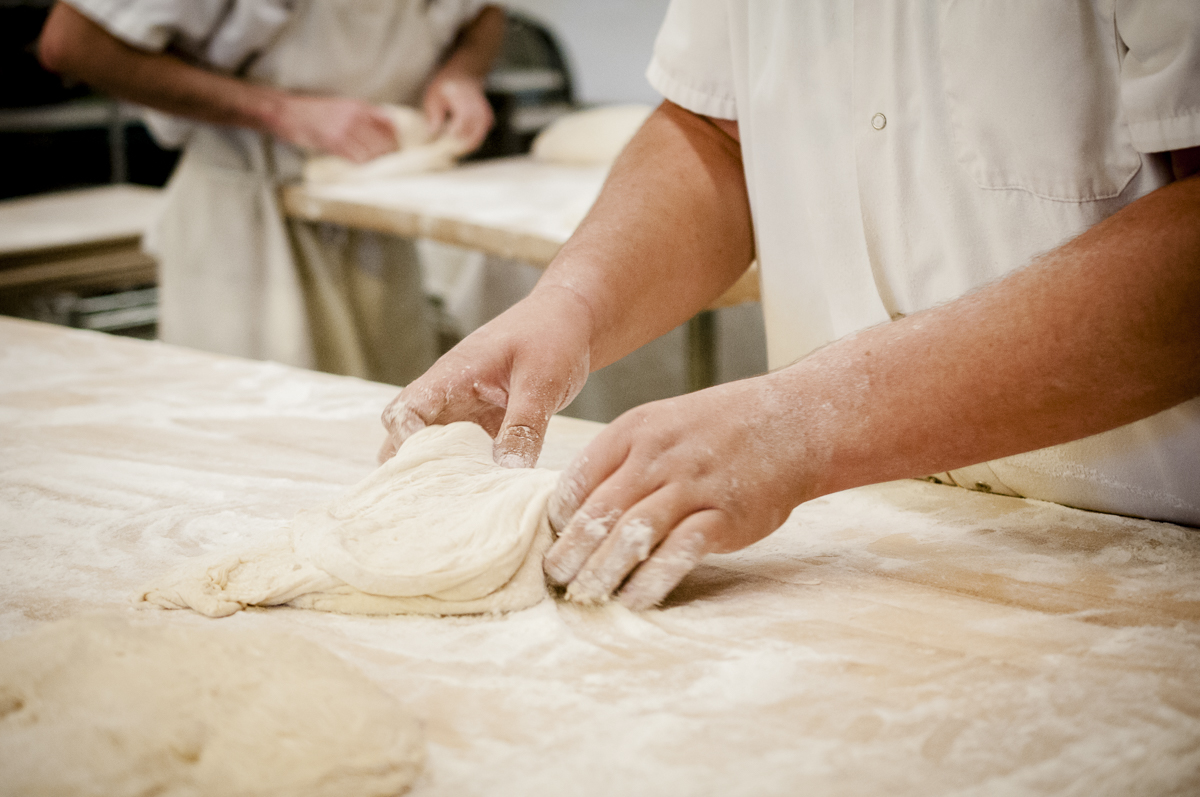Throughout 2015, the Food & Booze staff at 303 Magazine occasionally deviated from its normal schedule of restaurant highlights, food news, and roundups to showcase important people and issues related to the industry. This year, we found ourselves focusing on exceptional organizations, businesses and individuals—such as Denver Food Rescue and Work Options for Women—in order to illustrate their fervent passion and drive. Read on to hear their noteworthy stories and get to know the people that are making Denver a better place.
A 133-Billion Pound Problem: How Bikes are Fixing Denver’s Food Desert Issue
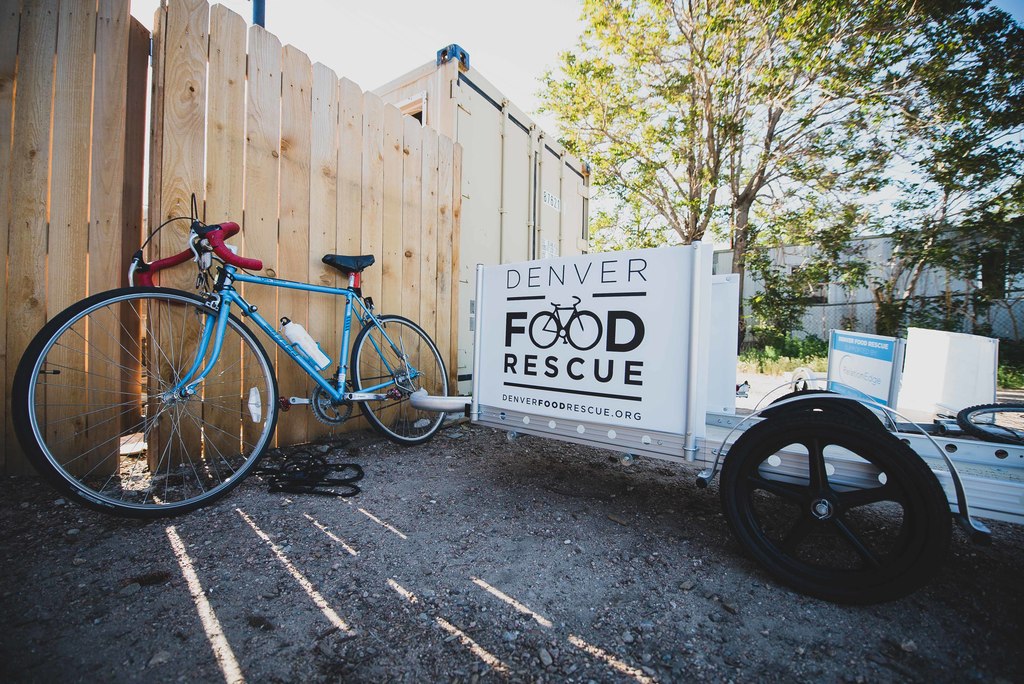
Denver Food Rescue. Photo by Kyle Cooper
By Maranda Bodas
There’s no doubt about it, Denver is changing. People are moving in, rents are skyrocketing, and neighborhoods are feeling the burden. Across the city, as communities strain under the pressure of this mass influx, families are struggling to keep food on the table…
24-year-old Turner Wyatt, the executive director of Denver Food Rescue, is on a mission to change that. With an ever-growing group of volunteers and partners, Wyatt is working to “fill people’s bellies with things that will actually improve their health” in the most efficient and low-cost way possible: bicycles. Read more here.
From Flour to Table: The Painstaking Process of Grateful Bread
By Trenton Reed
It’s late morning in the Grateful Bread warehouse, and Jeff Cleary—founder and head baker—supervises a team of five bakers intently focused on their final duties of the day. Hands never stopping, they scrape dough from a floured table, work, roll, and form the pieces into country dough loaves. And in just a couple hours, the baked dough will be served as table bread for some of Denver’s finest restaurants.
Housed in an 8,000 square-foot, unassuming industrial complex off Colfax in Golden, Colorado, the bakery is small—at least in comparison to the sheer volume that the crew produces. Roughly 70 hotels and restaurants are serviced daily. The team goes through about 15,000 pounds of flour each week, which amounts to roughly 2,500 pounds per day. That’s over 2,000 hamburger buns per day for the Park Burger family alone. And today’s daily production list is three pages long, with modifications filling an additional four pages.
While this output is impressive, the fact that each loaf is made by hand is staggering. But for Cleary, this attention to craft is only natural. He’s been doing it for a decade. Read more here.
How Learning to Cook is Helping Denver Women Get off Welfare
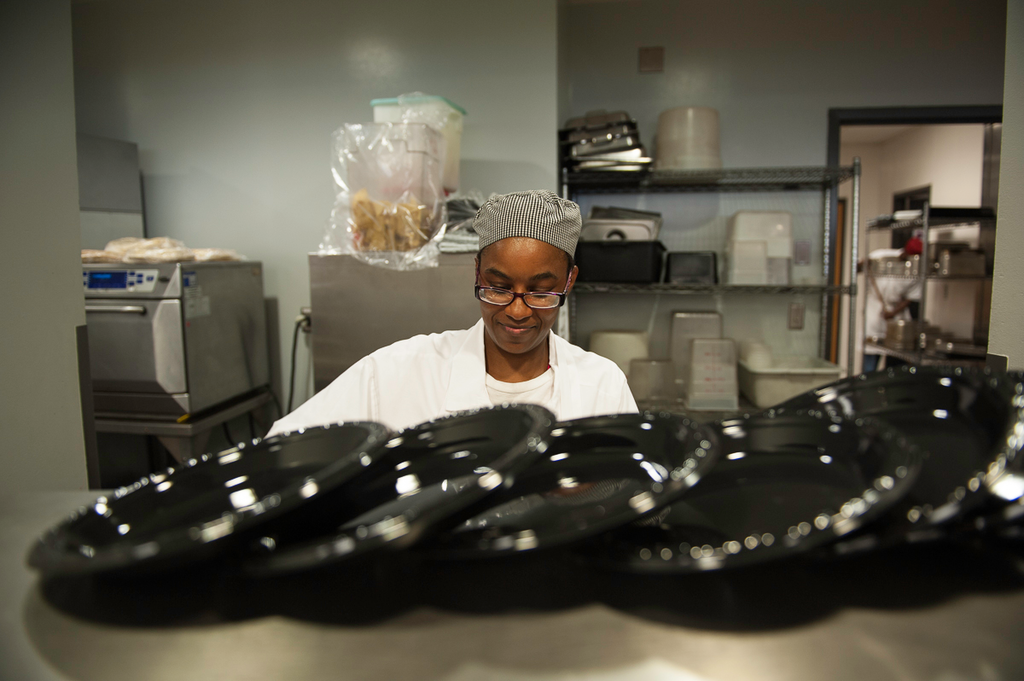
Jennifer, a student at Work Options for Women. Photo by Glenn Ross.
By Brittany Werges
Carrie Shores was always a natural in the kitchen. Growing up, even when she was living on government-rationed food— stuff she called “inedible”— her sister would drool over her every creation. “She would eat anything I made,” explained Shores. “I taught myself how to make my grandmother’s beef stew. I really remember one time perfecting it… my sister would eat bowls of it.”
It’s no surprise that with this inherent talent, Shores, now 38, would later become a chef—and an accomplished one, too. Long known as a “super taster” by her friends and family, she was able to pursue her calling at 19 by moving to the Bay Area to receive an education at the California Culinary Academy. After her schooling, she hit a major landmark in her career when she landed a job at the posh A16—one of the best restaurants in San Francisco. Working in the heart of the metropolis, she endured long nights and grueling shifts as a line cook. It was intense. But she loved it.
“Absolutely everything about it was amazing, I loved the restaurant, I loved the food, I loved Nate Appleman, the chef at the time, and while it was the hardest job I’ve ever had, it was also one of the most eye-opening, intense experiences I’ve ever had; it was just balls to the walls,” she said in an interview with Westword in 2013.
After cutting her teeth on the coast, she eventually returned to Denver, the city where she spent her adolescence. Starting as a pantry chef at Table 6, Shores was once again in the thick of it, living on the high of a dinner rush. She was a dedicated worker, and a talented cook. Finally with six years of working almost every job in the kitchen, it all paid off. She became executive chef. Everything seemed to have fallen in line with her childhood dreams—her life’s prophecy was actualized. But after just a year in the position, Shores did something almost no one was expecting.
She quit. Read more here.
Brewtography— One Man’s Mission to Capture Colorado’s Brewery Culture

Baere Brewing Company owner Kevin Greer. Photo by Dustin Hall.
By Cody Gabbard
“I have probably heard how to brew about a hundred and ten times, but the way they tell me, you can tell by talking to them, it’s super passionate,” said Dustin Hall of the 110 brewers and breweries he’s photographed for The Brewtography Project.
Hall has been taking photographs of local breweries as a hobby for the past year, and with the urging of a few of them, he will be putting together a book of the images and stories through Kickstarter early next year. It’s no surprise the Colorado resident of three years made breweries and their passionate personnel the subject of his latest project. Although he’s probably described the project hundreds of times, he is no less enthusiastic when recounting how it began and the experiences he’s had along the way. Read more here.
Rebel Restaurant Explains Why You Should Eat the Entire Animal, Head Included
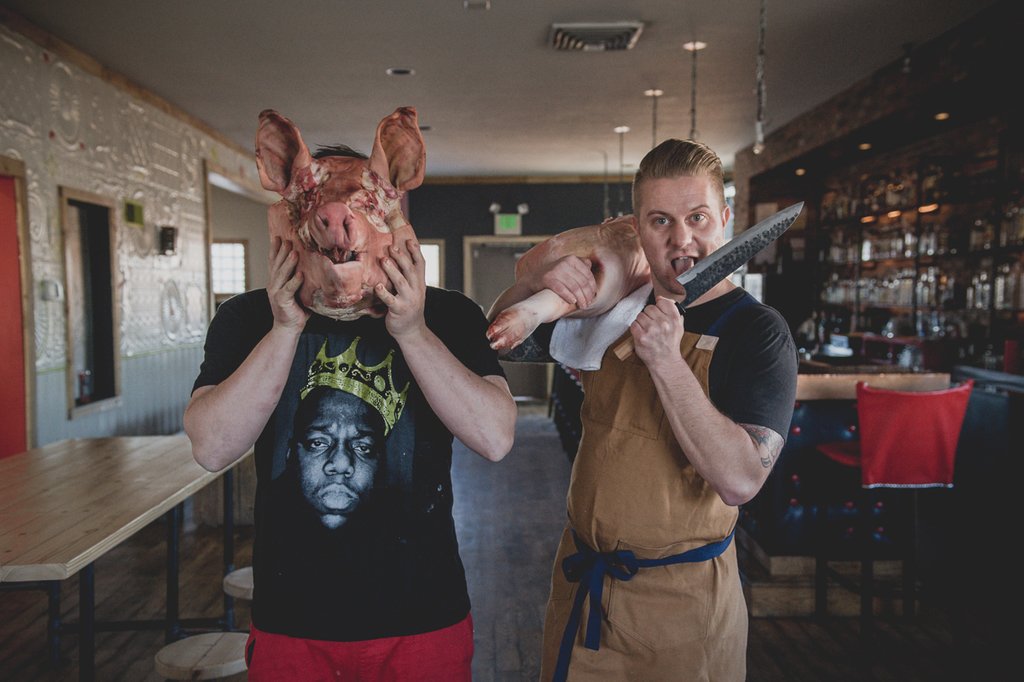
Rebel Restaurant owner and chef Dan Laisy (right). Photo by Glenn Ross.
By Trenton Reed [UPDATE: Entry added on December 31, 2015 at 12:01 p.m.]
Since opening doors on July 14, Rebel Restaurant has raised eyebrows for its boisterous menu, which regularly features an entire animal head and other offal offerings. A catchall for variety meats, offal refers to the organs and entrails of animals. And while brains, tails, feet, and glands are nothing new in the metro area—just pop into a Chinese or Mexican joint on Federal Boulevard or in Aurora for proof—thanks to comprehensive butchery programs and detailed nose-to-tail concepts, it seems as if there’s an offal uprising.
While the Mile High City’s status as a true food town is still up for debate, it’s clear that the city has embraced the unabashed spirit of Rebel: the spot has earned heaps of accolades from Denver’s press and diners alike. If anything, the city’s restaurant boom has enabled chefs to tinker with possibility—and diner’s perceptions of normalcy. And whether intentional or not, Rebel Restaurant is audaciously spearheading an otherwise quiet revolution. Read more here.
Zoe Ma Ma and The No-Tipping Movement
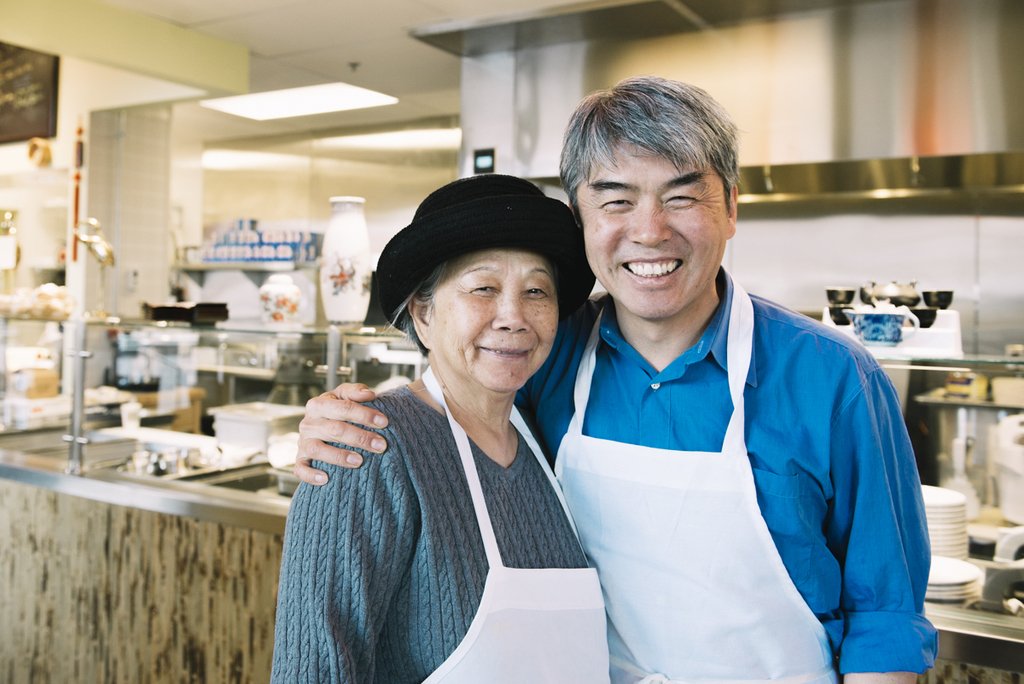
Edwin Zoe and his mother. Photo by Elisha Knight.
By Kersten Jaeger
Across the country, more and more restaurants are attempting to move away from conventional tipping culture. Some are adopting a surcharge such as California Bay Area restaurant, Chez Panisse, while others, like New York’s Per Se, are increasing prices across the board. In 2013, New York Times Food Critic Pete Wells wrote an article questioning the necessity of tips. It sparked a debate in the food community here in town, which was captured in an article written by Eater Denver. In this piece, a group of owners, managers, chefs and food critics responded with incredibly mixed feelings. However the majority agreed that Denver doesn’t seem ready for such a change.
This, however, hasn’t stopped Edwin Zoe, owner of Zoe Ma Ma. Read more here.

